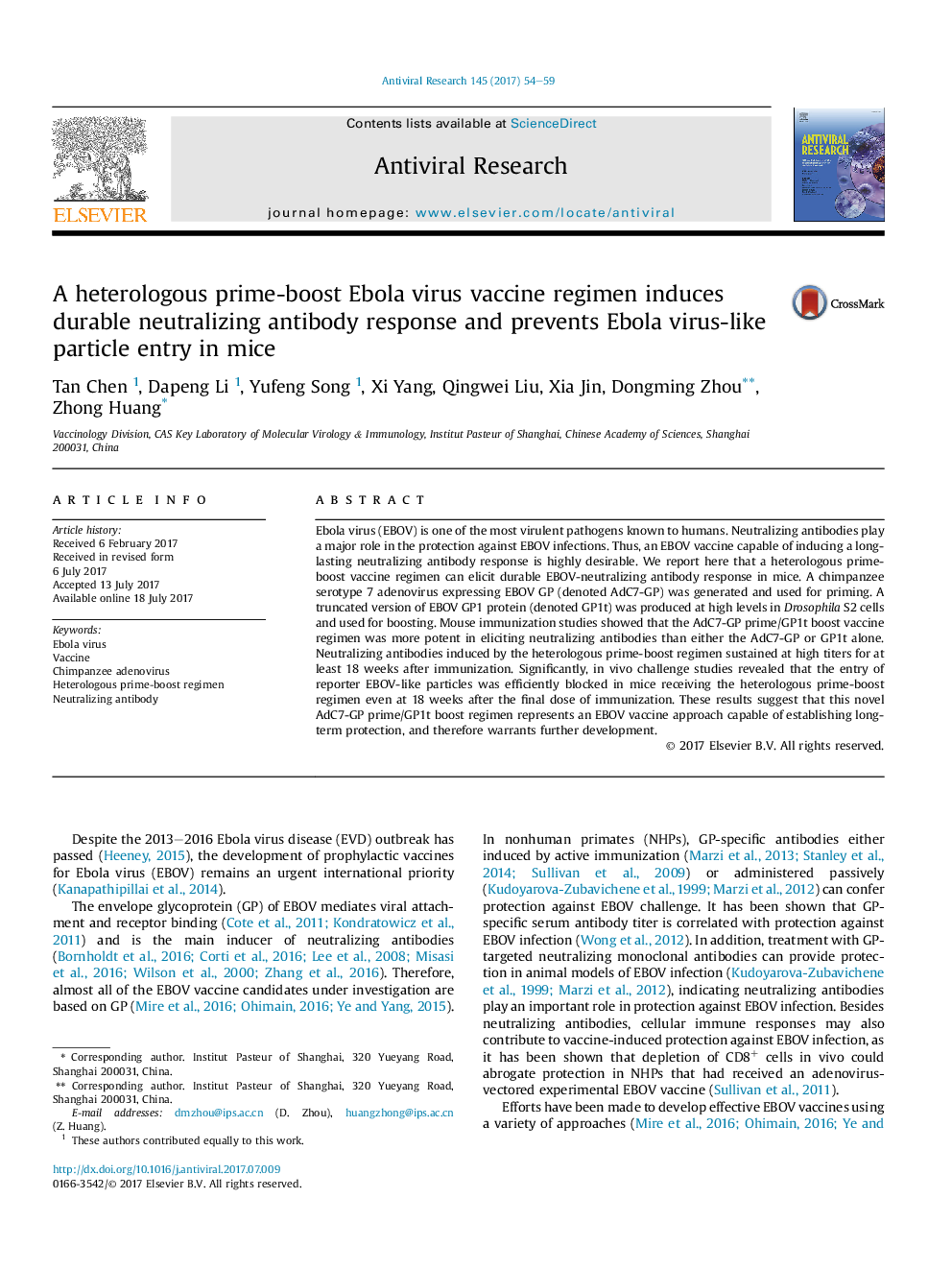| Article ID | Journal | Published Year | Pages | File Type |
|---|---|---|---|---|
| 5551647 | Antiviral Research | 2017 | 6 Pages |
â¢A heterologous prime-boost vaccine regimen for EBOV was developed.â¢A chimpanzee serotype 7 adenovirus expressing EBOV GP was used for priming.â¢A truncated version of GP1 recombinant protein was used for boosting.â¢The prime-boost regimen elicited durable neutralizing antibody response in mice.â¢Immunized mice were highly resistant to EBOV-like particle entry.
Ebola virus (EBOV) is one of the most virulent pathogens known to humans. Neutralizing antibodies play a major role in the protection against EBOV infections. Thus, an EBOV vaccine capable of inducing a long-lasting neutralizing antibody response is highly desirable. We report here that a heterologous prime-boost vaccine regimen can elicit durable EBOV-neutralizing antibody response in mice. A chimpanzee serotype 7 adenovirus expressing EBOV GP (denoted AdC7-GP) was generated and used for priming. A truncated version of EBOV GP1 protein (denoted GP1t) was produced at high levels in Drosophila S2 cells and used for boosting. Mouse immunization studies showed that the AdC7-GP prime/GP1t boost vaccine regimen was more potent in eliciting neutralizing antibodies than either the AdC7-GP or GP1t alone. Neutralizing antibodies induced by the heterologous prime-boost regimen sustained at high titers for at least 18 weeks after immunization. Significantly, in vivo challenge studies revealed that the entry of reporter EBOV-like particles was efficiently blocked in mice receiving the heterologous prime-boost regimen even at 18 weeks after the final dose of immunization. These results suggest that this novel AdC7-GP prime/GP1t boost regimen represents an EBOV vaccine approach capable of establishing long-term protection, and therefore warrants further development.
